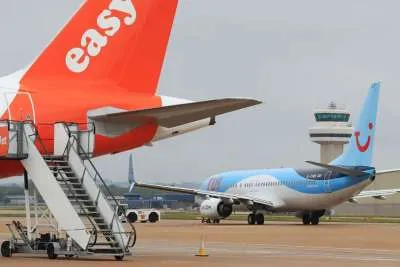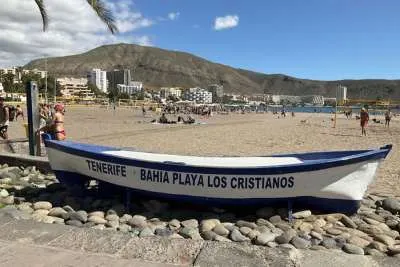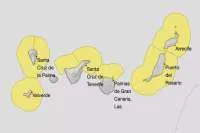Latency, Legislation and Location: Canary Islands as a Strategic Node for European Online Casinos
- 12-06-2025
- Business
- collaborative post
- Photo Credit: iStock
At first glance, the Canary Islands might seem like a sun-soaked escape rather than a tech-forward base of operations. However, their location tells a different story. Off the northwest coast of Africa and sitting firmly within the European Union, this geographical detail creates a quiet advantage for online casino operators seeking to reach European users, all without dealing with the congestion or regulatory pressure found in some mainland hubs.
If you're involved in real-money gaming, latency becomes a daily concern; between live blackjack or an in-play football wager, players expect speed and precision. Hosting operations in the Canary Islands allow platforms like GoldenbetCasino.org to deliver real-time performance to users across Western Europe with minimal lag. The network infrastructure in place, including multiple undersea fibre-optic cables, turns this tropical archipelago into a technical waypoint few would expect, but many could benefit from.
Stable Rules in a Shifting Sector
The online gambling industry across Europe operates in varying shades of regulation. Although some markets maintain rigid national frameworks, others adopt looser or fragmented policies. For operators seeking a stable foundation, the Canary Islands, governed under Spanish law, offer a welcome degree of legal predictability. Spain’s regulatory framework, shaped by its 2011 Gambling Act, is among the most clearly structured in the EU. That means licensing procedures are well-established and you're operating within a known set of expectations.
In this context, the Canary Islands benefit from alignment with both Spanish and EU directives. This dual protection reduces the risk of sudden changes, surprise bans or complex cross-border enforcement. It gives platforms the ability to plan long-term infrastructure and staffing decisions without fearing legislative whiplash. That level of predictability is a competitive asset, particularly in an industry often marked by abrupt regulatory shifts and jurisdictional grey zones.
Tax Incentives That Reward Commitment
Cost remains a key factor when setting up operations, and this is where the Canary Islands provide yet another advantage. Through the Zona Especial Canaria (ZEC), companies investing in the islands under specific conditions can benefit from substantially reduced corporate tax rates, sometimes as low as 4%. While this isn't a loophole or offshore backdoor, it is a strategic incentive for firms willing to commit capital and create local employment.
Operating within ZEC guidelines allows online casinos to access tax savings while maintaining legitimacy within the EU financial framework. For businesses that want efficiency without stigma, the islands offer a balanced middle ground. There’s no need to hide behind murky offshore jurisdictions or accept the reputational risk that comes with them. Instead, you gain economic benefits from a transparent and regulated setup that withstands scrutiny from partners, banks and payment providers.
Digital Infrastructure and Skilled Support
Despite their island setting, the Canaries have kept pace with mainland Europe in terms of digital infrastructure: widespread high-speed broadband, strong mobile networks and steadily expanding data centre capacity make the islands surprisingly well-equipped for tech-heavy operations. For companies needing uptime reliability and fast throughput, this infrastructure forms a key part of the decision-making process.
Equally important is the availability of skilled professionals, with several universities on the islands feeding into a growing pool of tech talent, particularly in software engineering, cybersecurity and multilingual customer support. Public investment has helped nurture this ecosystem through grants and training schemes aimed at digital growth. When you're building a gaming operation that relies on constant iteration, reliable compliance and real-time support, having the right people in the right place adds measurable value.
Positioned Between Continents
The Canary Islands offer more than European access; they sit at the crossroads of multiple high-potential markets. With North and West Africa within close reach, operators have an opportunity to position themselves near regions beginning to develop digital betting frameworks. Internet penetration is rising fast across many African economies, particularly through mobile-first platforms, making them attractive for future-facing gambling services.
Meanwhile, cultural and linguistic ties to Latin America create additional expansion potential. Spanish-speaking staff based in the Canaries can more easily adapt platforms to Latin American audiences, linguistically and culturally. If you're looking to scale operations across continents without juggling conflicting jurisdictions or fragile financial channels, the Canary Islands offer a powerful starting point. Ultimately, they position you well for the next wave of market development.
Final Notes
In an industry shaped by split-second connections, tight regulation and cross-border complexity, the Canary Islands offer something rare: a location that ticks all the right boxes without demanding compromise. Low latency, EU-aligned legislation and appealing tax structures come together in a setting that also happens to be physically and digitally well-connected. If you're seeking a competitive edge without stepping outside compliance boundaries, this archipelago offers far more than a pretty backdrop.
Therefore, establishing infrastructure in the Canary Islands is equally a logistical decision and a commitment to long-term operational efficiency within a stable European framework. The region supports a serious digital enterprise with robust connectivity, transparent regulation and competitive tax advantages. Between scaling an established brand or preparing to enter Europe’s competitive market, the Canaries offer a strategic foundation built for sustained growth and regional reach.
Key Takeaways
1. Low-latency European connections: The Canary Islands are serviced by six undersea fibre cables, offering latency of around 30–50 ms to Western Europe, ideal for real-time online casino play.
2. Very competitive corporate tax: Companies qualifying under the Zona Especial Canaria (ZEC) programme pay just 4% corporate tax, compared to Spain’s standard 25%, through at least 2026.
3. Robust digital infrastructure: Over 93% of households in Gran Canaria have broadband at 100 Mbps or better, with 95% 5G coverage bolstering connectivity.
4. Skilled and educated workforce: Five universities on the islands enrol over 38,000 students annually, nurturing a growing supply of ICT graduates suited to tech-intensive industries.
Other articles that may interest you...
Trending
Most Read Articles
Featured Videos
TributoFest: Michael Buble promo 14.02.2026
- 30-01-2026
TEAs 2025 Highlights
- 17-11-2025


























































